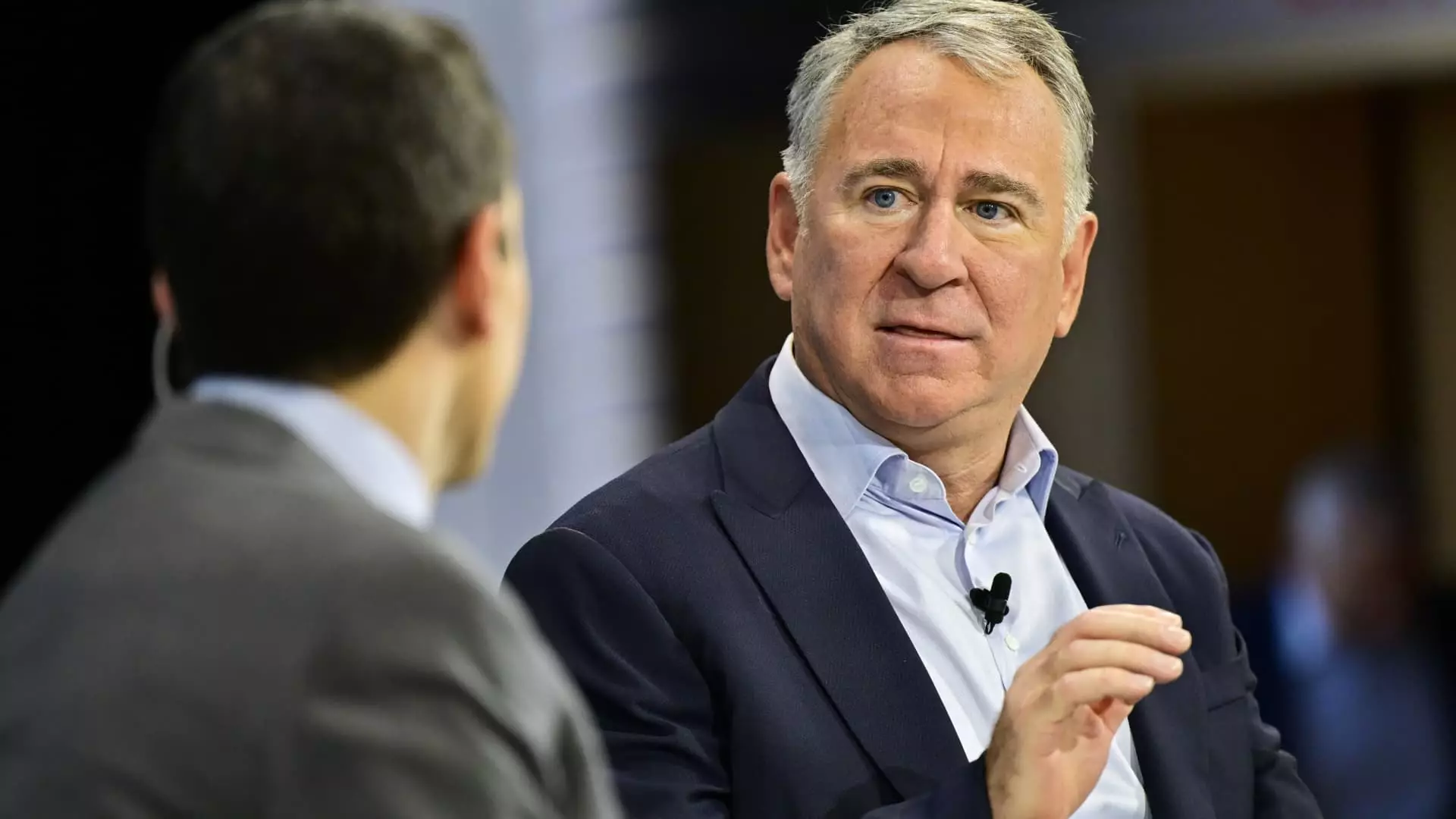January 2025 marked a month of substantial volatility in the financial markets, yet Ken Griffin’s hedge fund, Citadel, managed to navigate this storm with notable success. Reports indicate that Citadel’s flagship Wellington fund, renowned for its multistrategy approach, achieved a modest gain of 1.4% during the month. This followed an impressive 15.1% increase recorded in the previous year, setting a bright tone for the firm as it moved into 2025. Interestingly, all five core strategies employed within the Wellington fund—commodities, equities, fixed income, credit, and quantitative methodologies—reported positive performance, showcasing the fund’s robust structural integrity amidst challenging conditions.
Delving deeper into the performance of Citadel’s funds in January, their tactical trading fund outperformed many expectations, climbing 2.7%, mirroring the gains seen in the equities fund that utilizes a long/short strategy. Additionally, the global fixed income fund posted a respectable 1.9% increase. Such results underscore the strategic diversification employed by Citadel, which allows them to uphold returns across varying market segments, even as external factors exert pressures on investment performance.
The broader market landscape during this month was fraught with challenges, primarily fueled by investor apprehension regarding the ramifications of President Donald Trump’s protectionist policies. His administration’s economic plan sent ripples through the market, resulting in wide price swings and contributing to a cautious investor sentiment. The uncertainty was further exacerbated by the emergence of an AI competitor named DeepSeek from China, which triggered significant sell-offs in major tech stocks such as Nvidia. Despite these headwinds, the S&P 500 index managed to gain 2.7% in January, aided by its positive momentum from the previous two remarkably strong years.
Amidst the turmoil, Ken Griffin emerged as a vocal critic of the proposed tariffs by the Trump administration, cautioning that such a move could catalyze crony capitalism. While he acknowledged potential short-term advantages for domestic companies weakened by foreign competition, he warned of detrimental long-term consequences for productivity and competitiveness. His insights highlight a pivotal tension in economic policy where immediate gains may disguise the need for sustainable growth strategies.
As Citadel moves forward into 2025, the hedge fund’s ability to generate positive results across various strategies serves as a testament to its foundational strength and strategic foresight. Griffin’s commentary on the broader economic landscape invites a deeper consideration of how policy decisions can shape market dynamics, ultimately influencing not just hedge funds but the entire spectrum of American enterprise. In a time marked by rapid technological advancement and shifting geopolitical climates, Citadel stands as a beacon of resilience and adaptability, poised to face the challenges that lie ahead.

